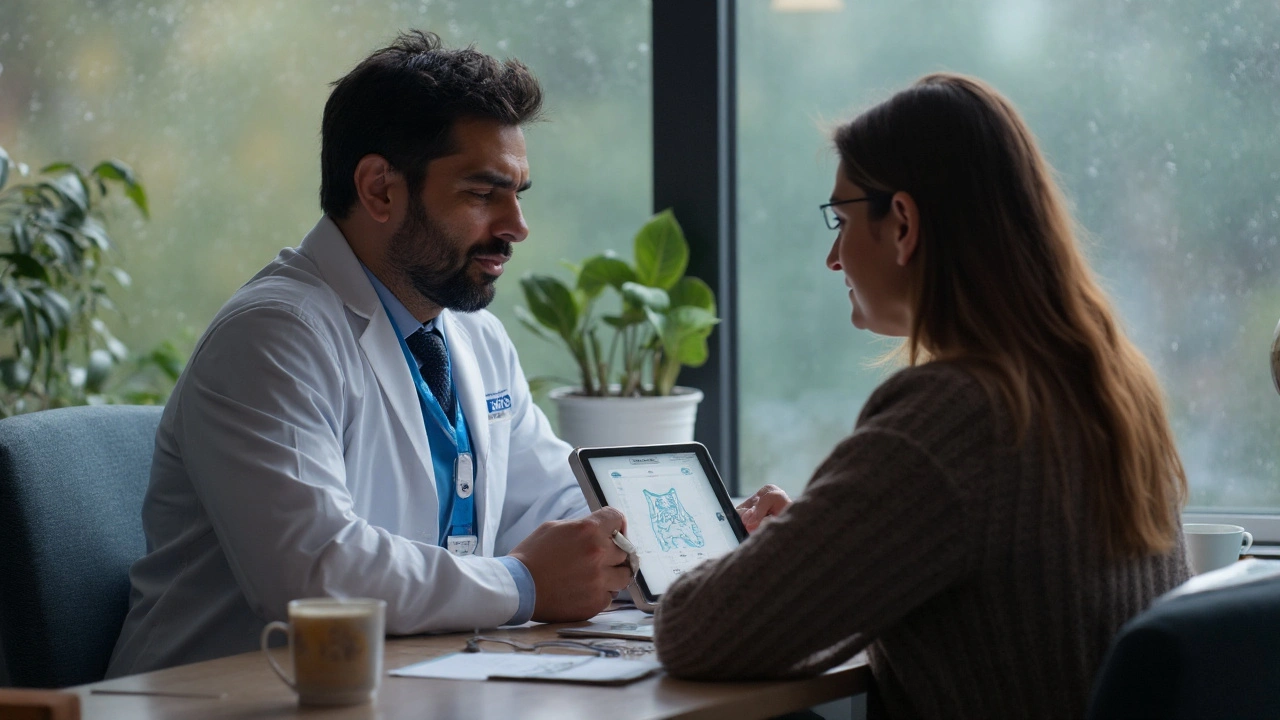Chronic Constipation: What Triggers It and How to Find Quick Relief
If you’re wrestling with hard, infrequent stools, you’re not alone. Chronic constipation affects millions and can turn simple daily routines into a hassle. The good news? Most cases have clear triggers that you can change, and several low‑risk solutions work fast. Below we break down the main reasons constipation sticks around and give you practical steps you can start today.
Common culprits you can control
First, look at what’s in your diet. A low‑fiber intake is the top offender—think fast food, white bread, and sugary snacks. Fiber adds bulk and helps water stay in the stool, making it easier to pass. Aim for 25‑30 grams of fiber a day from fruits, veggies, whole grains, and beans. Next, check your water intake. Dehydration hardens stool, so sip at least eight glasses of water daily, more if you exercise.
Another often‑overlooked factor is activity level. Sitting at a desk for hours slows gut movement. Even a short walk after meals can kick the colon into gear. Finally, stress and irregular sleep can mess with your digestive rhythm. Try a consistent bedtime and simple relaxation tricks like deep breathing to keep the gut calm.
When over‑the‑counter help makes sense
If diet and lifestyle tweaks aren’t enough, OTC options are safe for short‑term use. Bulk‑forming agents such as psyllium husk or methylcellulose add fiber without the extra carbs. Osmotic laxatives like polyethylene glycol draw water into the intestines, softening stool quickly. Stimulant laxatives (e.g., senna) should be a last resort because the body can become dependent on them.
Remember to follow the label and stay hydrated when using any laxative. If you need a prescription medication—like a lubiprostone or linaclotide—it’s usually because the constipation is linked to an underlying condition (IBS‑C, nerve issues, or medication side effects). Our site has detailed guides on several prescription options, so you can see what’s out there before you talk to your doctor.
When should you see a professional? If you notice blood in the stool, sudden weight loss, severe abdominal pain, or the problem lasts more than three weeks despite home measures, schedule an appointment. These signs can point to a more serious issue that needs testing.
Living with chronic constipation doesn’t have to be a daily struggle. By boosting fiber, staying hydrated, moving your body, and using OTC aids wisely, you’ll likely see improvement within days. For deeper dives into specific drugs that affect bowel health—like certain antidepressants, pain relievers, or iron supplements—check out our related articles on the tag page. They give you a clear picture of what to avoid and what might actually help.
Take one change at a time, track how your body reacts, and you’ll soon find a routine that keeps things moving smoothly. Your gut will thank you, and you’ll get back to focusing on the things that matter most.
Prucalopride FAQ: Uses, Dosage, Side Effects, How Fast It Works
Straight answers on prucalopride: who it’s for, how to take it, how fast it works, side effects, and safety. Practical tips with Australia-aware notes. Updated 2025.
